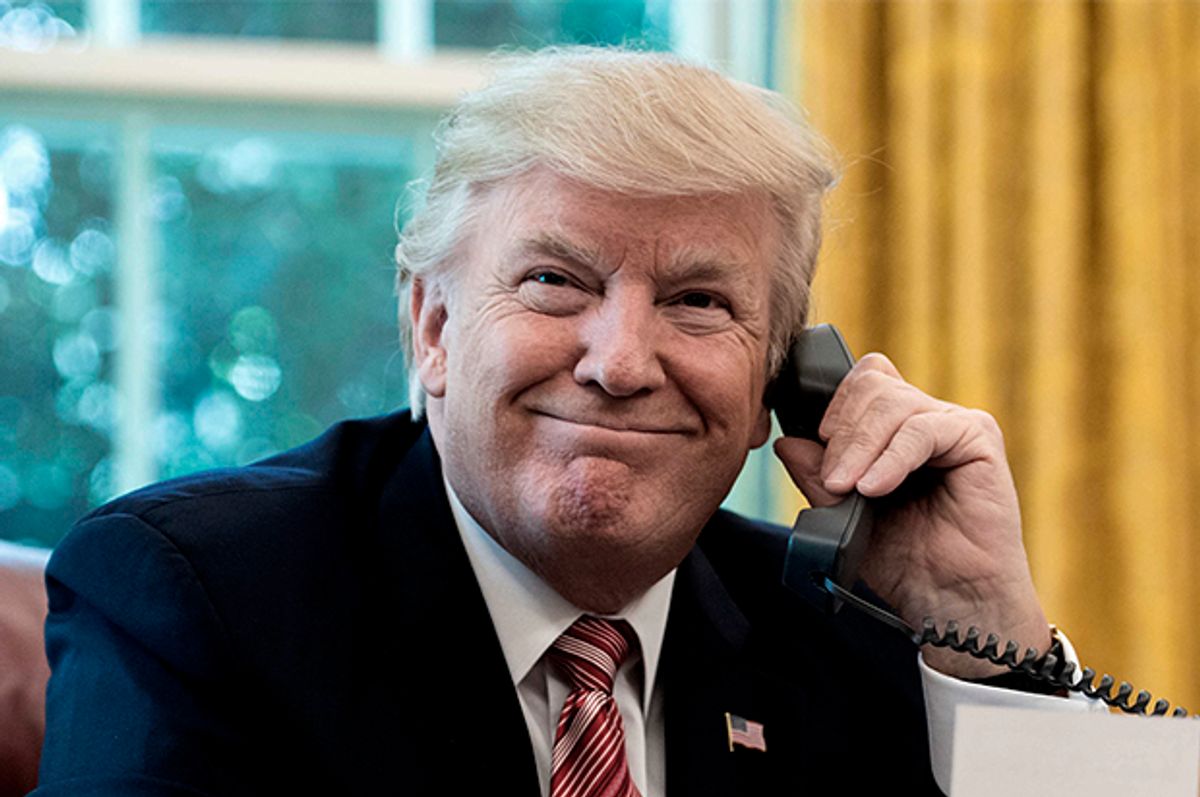Foreign policy crises comes and go, but the power struggle between an unorthodox and ignorant president and America’s military machine is eternal.
With North Korea repeatedly demonstrating the potency of its nuclear arsenal, the president and the Pentagon are struggling to counter a new threat to U.S. allies in Asia and potentially to the United States itself. They are also struggling with each other about the best way to respond.
After North Korea’s sixth nuclear test on Sunday, Defense Secretary James Mattis warned North Korea that any major threat to the U.S. or its allies would be met with a "massive military response." His strong but conventional rhetoric, balanced by the assurance that “we are not looking to the total annihilation of a country, namely North Korea,” contrasted with Trump’s belligerent proclamation of August 8 that any further North Korean threats would be met with “fire and fury the likes of which the world has never seen.”
This could be rationalized as a good cop-bad cop routine, but the rhetorical differences reflect real policy differences, and not just on North Korea. Trump’s generals are seeking, with some success, to pull the president toward their positions. Trump, with some exceptions, is being tamed by the military.
Breaking
Donald Trump came to office with zero military experience and at least four strongly held opinions that broke with longstanding U.S. military policy.
He expressed a hope for cooperating with Russia in Syria when most senior U.S. military commanders saw Russia an obstacle to the U.S. goal of overthrowing Syrian president Bashar al-Assad.
In 2013, he called for “speedy withdrawal" of the tens of thousands of U.S. troops from Afghanistan, which U.S. commanders had requested in 2009.
During the campaign he badmouthed NATO allies as deadbeats, while most U.S. commanders see them as essential allies in projecting U.S power into Europe, Eurasia and the Middle East.
And Trump did not sugarcoat the results of U.S. military intervention in Iraq. During the 2016 campaign, Trump excoriated former president George W. Bush for lying about Saddam Hussein’s nonexistent weapons of mass destruction and the folly of the 2003 invasion of Iraq. The conservative website RedState said that Trump had gone “full radical left winger.” Kevin Madden, a former spokesman for Mitt Romney, told the Los Angeles Times that Trump’s views on 9/11 and the Iraq war were “outside the mainstream of Republican thought.”
Since his election, Trump has uttered fewer such heresies.
Bending
Nine months into his presidency, Trump is bending to the military, not vice versa.
This is not terribly surprising. Military expertise is about the only form of expertise Trump respects. He appointed three generals to top civilian positions in his administration. In May, he proposed a $52 billion increase in the defense budget.
On Afghanistan, the generals simply overwhelmed him. Uninterested in policy details, Trump could find no way to act on his impulse to avoid staying involved in a 16 year-long war. After harshly criticizing U.S. battlefield performance in private meetings, he meekly approved a plan to send 4,000 more troops to Afghanistan.
In the Middle East, Trump did not entirely toe the military line. He abandoned the CIA-backed rebels in Syria while loosening rules of engagement for U.S. aerial attacks on ISIS. He has abandoned the U.S. policy of seeking the overthrow of President Assad in favor of working Assad’s Russian allies.
On Iran, Trump seeks to provoke conflict, an ambition shared by Defense Secretary James Mattis. But again there is a significant difference in tactics.
Trump seeks to rationalize waging war on Iran by jettisoning the 2015 international agreement to curb the Islamic Republic’s nuclear program. The national security leadership, from the CIA to the Joint Chiefs of Staff, favors keeping the agreement. In July the generals prevailed, persuading Trump to accept the CIA’s assessment Iran is in compliance. While Trump is open about his intention not to certify Iran again, the military’s preferred position stands as U.S. policy, at least for the moment.
Trump has failed utterly in his impulse to forge a less confrontational policy toward Russia, though it was not the Pentagon that blocked him. By voting to strengthen sanctions against Russia for meddling in the 2016 election, Congress effectively handcuffed Trump to the Obama administration’s more hostile policy. Since Trump came to office, NATO's posture in Europe — including military exercises near Russia’s borders — has not changed significantly.
The appointment of former general John Kelly as White House chief of staff has further crimped Trump’s unorthodox impulses. Kelly quickly purged the most independent foreign policy thinkers in the White House: nationalist Steve Bannon and neo-Nazi Sebastian Gorka. Their departure, while welcome on many counts, will narrow the range of policy options presented to Trump and thus keep him more closely aligned with the Pentagon.
Bottom line: As commander in chief, Trump is an erratic enabler of what President Dwight Eisenhower called the military-industrial complex. The military is seeking to tame him with some success. On North Korea and Iran at least, this is a welcome development.




Shares